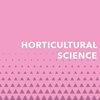古巴凤梨种质特征的最小形态农艺描述符
IF 1.3
Q3 HORTICULTURE
引用次数: 2
摘要
一套最小描述符允许对种质资源进行快速表征,促进植物材料的保护和利用。这项工作的目的是建立一个最低描述符的清单,以促进古巴非原生境菠萝收集的形态特征。因此,根据国际植物遗传资源委员会(IBPGR)建立的形态农艺描述符对48份菠萝材料进行了鉴定。数据采用多变量分析,对定性和定量性状采用多主成分分析。提出了一个包含14个最小描述符的列表。选择叶的颜色、最长叶的厚度、刺的分布、果实形状、成熟时的果实颜色、果肉颜色、果肉重量、眼形、果实高度、果实直径、小果形状、果心直径、果实总可溶性固形物和冠重/果重比作为最小描述子。由于大多数描述符都涉及菠萝的遗传改良或商业化方面,因此它可能是科学家和生产者的有用工具。本文章由计算机程序翻译,如有差异,请以英文原文为准。
Minimal morphoagronomic descriptors for Cuban pineapple germplasm characterisation
A set of minimum descriptors allow for the rapid characterisation of germplasm facilitating the conservation and use of plant material. The objective of this work was to establish a list of minimum descriptors to facilitate the morphological characterisation of the ex situ pineapple collection in Cuba. Therefore, 48 pineapple accessions were characterised according to the morphoagronomic descriptors established by the International Board for Plant Genetic Resources (IBPGR). The data were processed by Multivariate Analysis, where a Multiple Principal Components Analysis was used for the qualitative and quantitative traits. A list with 14 minimum descriptors was proposed. The leaf ’s colour, the thickness of the longest leaf, the distribution of the spines, the fruit shape, the fruit colour when ripe, the flesh colour, the weight of fruit flesh, eye form, the fruit height, the fruit diameter, the fruitlet shape, the core diameter, the total soluble solids of the fruit, and the crown weight/fruit weight ratio were selected as the minimum descriptors. Because most of the descriptors refer to the pineapple’s genetic improvement or commercialisation aspects, it could be a useful tool for scientists and producers.
求助全文
通过发布文献求助,成功后即可免费获取论文全文。
去求助
来源期刊

Horticultural Science
Horticulture-园艺
CiteScore
2.20
自引率
0.00%
发文量
23
审稿时长
>12 weeks
期刊介绍:
The journal publishes results of basic and applied research from all areas of horticulture, fruit-growing, vegetable-growing, wine-making and viticulture, floriculture, ornamental gardening, garden and landscape architecture, concerning plants that are grown under the conditions of European temperate zone, or field plants that are considered as horticultural cultures. Original scientific papers, short communications and review articles are published in the journal. Papers are published in English (British spelling).
 求助内容:
求助内容: 应助结果提醒方式:
应助结果提醒方式:


